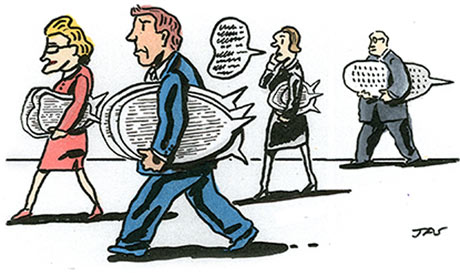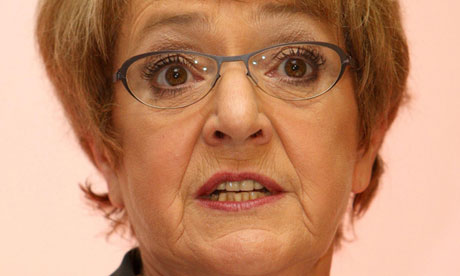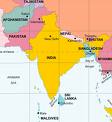
Anguished at the collapse of the unregistered Saradha Group, collection agents and depositors took to Kolkata's streets in protest. Photo: Ashoke Chakrabarty
Even as thousands come to terms with the loss of life savings in the West Bengal “chit funds,” it is interesting to find politicians promising new stern laws against such funds. Absence of laws is the least of the reasons for such schemes flourishing in the State. We are not short of such laws — in fact, we have plenty of laws that prohibit such schemes and provide for the sternest penalties for the perpetrators.
The current scam is an almost identical rerun of one from 25 years ago and the machinery has allowed the same thing to happen. But if a Rs.22,000 crore scheme questions the very institutions that define the system — be it the Supreme Court or SEBI, and the implementation of their orders — there is little surprise that the only succour we can pretend to find is in law-making.
The West Bengal ‘chit funds’ are not chit funds at all, since these have a different structure. Chit funds are mutual credit groups where money circulates among the group members, and the monthly contributions of the chit members are received in rotation by one of the members who bids for it — much like a ‘kitty’. Chit funds are perfectly legal (if they are registered under the Chit Funds Act 1982).
The several names that keep popping up in West Bengal are Collective Investment Schemes or Public Deposit Schemes, which on the face of it do not come under any law. They are structured so as to be neither a ‘public deposit’ nor a ‘collective investment scheme.’ However, this restructuring is purely superficial and takes advantage of apparent legal loopholes. Even the most basic regulation should detect this.
The evolution of regulatory structure in India is a rare case of human learning and we have burnt our fingers every time. Every scam brought in a law; the law is the edifice built on scams and not on intuition.
Money circulation schemes were banned by law in 1978, after Sanchayita Investments went down with money pooled from a few lakh investors in West Bengal. Soon after, chit funds became a hot political issue, leading to a chit fund law in 1982.
So how do scamsters still end up raising several thousand crores? Obviously, so much money is neither raised overnight, nor silently, as there is a massive machinery of agents who do it from the very bottom of the population pyramid. Each scamster innovates a device to sell to unsuspecting depositors — ranging from debentures, preference shares and land deals to advance payment for goods.
The mechanism of these schemes is so simplistic that it is hard not to see that these schemes must go bust.
The promoters who float this fund sign on agents by selling either shares or a stake in a real estate investment fund. They are to get a commission for signing on new people. Suppose an agent signs on 4 people, when each of them signs on another 4, the original agent receives commission for 16 people.
Thus, people at the top make money rapidly, often becoming rich overnight. The people lower down the pyramid see these examples and it is this which makes them greedy, attracting them to sign on as depositors hoping to make easy money.
No matter what the device used, the common thread in these schemes is that the flow of new ‘depositors’ must keep coming in — the only source from which existing depositors can continue to be paid is by inflows from new depositors. Money is initially raised at hefty interest rates, and with attractive periodic prizes, gifts, gala parties, and so on. The agents are given hefty commissions, because the design relies on a highly incentivised structure of brokers or agents.
The cost of interest, plus the agency commissions, the luxurious spending on so-called depositor prizes and the lavish remuneration of the promoters builds up a huge working cost. The company must then make profits at over 25 per cent, a rate which no business can sustain. It is not that these promoters are blue-eyed investors, and they end up sinking funds in illiquid properties, resorts or hotels and often end up making losses.
More often than not, they have dubious intentions and the money from the fund is siphoned off into personal accounts. This is what Ponzi schemes are all about.
The massive money raised surely shows somewhere on the balance sheet of the company, which is filed regularly with the Ministry of Corporate Affairs (MCA). Surprisingly, it is the MCA which is the least proactive in the entire process of bringing the perpetrators to regulatory focus.
(The author, a specialist in financial law and visiting faculty at prominent universities, can be contacted at vinod@vinodkothari.com)





